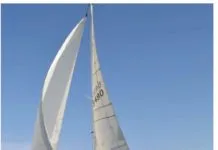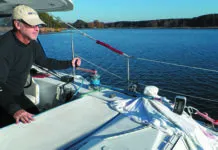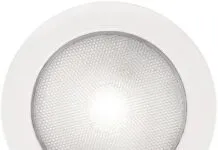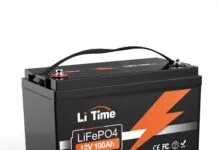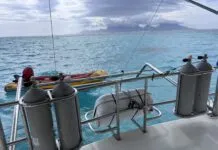Always curious about the physical limits of sailing gear, Practical Sailor asks readers to send us their broken stuff to be studied. Interestingly, several products we received this year were made by some of our favorite manufacturers, companies with good reputations whose products Practical Sailor has recommended in the past. Digging through the “Gear Graveyard,” this year reminded us why engineering a product for

288
marine use continues to be a challenge-between the environment and the users, the odds are stacked against survival.
West Marine Garmin GPS
Our electronics testing program is demanding, and the West Marine Garmin GPS 76CS Plus we recommended after our 2006 test (November 2006) had already been dunked, dropped, and sprayed multiple times before it went into service. After two more years of hard use, it failed to turn on. Corrosion at the battery compartment appears to be the cause. Although some marine electronics are rated to “water resistant” or “waterproof” standards, the standards don’t cover salt water. In some respects, the designation is a bet that the user will take care of his gear.
Bottom line: With some polite pressure and proof of purchase, this unit would

288
likely be covered by Wests “no hassles” guarantee, and the owner should be able to get store credit.
Leatherman Juice CS4
Leatherman has long been a leader in multi-tools, and the companys well-engineered Wave was the favorite in our most recent multi-tool test (August 2004). The firms 25-year warranty is also outstanding. Smaller than the Wave, this Juice CS4 (above) snapped sharply at the base of the needle-nose pliers. We suspect that if we sent this product in for repair, Leatherman would fix it at no expense.
Bottom line: While the metal failure surprised us, the tool broke under side blows from a hammer, so the maker cannot be faulted.
Flexible Solar Panel
Practical Sailor came out in favor of flexible solar panels in previous tests, and we know sailors who use them with success. (See our 2003 survey online at www.practical-

288
sailor.com, under “Tools and Techniques.”) However, they are not nearly as rugged as rigid panels. A solar panel (photo at left) sent in by a reader after two-plus years of use exhibits the typical failure, the plastic film covering the photovoltaic cells delaminated, developing a small leak, and then corrosion set in. The warranty period is short: two years.
Bottom line: Unless you truly need a flexible panel, opt for a rigid panel that is covered by a longer warranty. For full-time cruising, look for one with a 20-year warranty, the current standard for quality solar panels.
Titan Winch Handle
Lewmars plastic, floating Titan winch handle was one of our favorite low-budget handles in our last comparison (April 15, 2004). Titans are guaranteed for their

288
lifetime never to break, although that warranty does not cover the lock-in release switch, which broke on this poorly maintained Titan of undetermined age. A routine application of an anti-corrosion spray or grease probably would have prevented this problem. When the locking mechanism seized, a pair of pliers snapped the release switch.
Bottom line: The Titans are strongly built, low-budget winch handles. Lewmar has said it would probably be able to repair this one for a reasonable fee at one of its repair center.
Got items for Gear Graveyard? Send them to Practical Sailor, 7820 Holiday Dr. S., Suite 315, Sarasota, FL 34231. Or e-mail us at practicalsailor@belvoirpubs.com.


